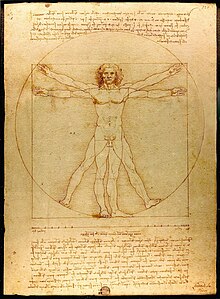Ethics/Nonkilling/Spiritual/Humanism
It would seem at first glance that there is an obvious commonsense reason why nonkilling and humanism are closely allied. Humanism means assigning the highest value to live human beings. Observation and respect for the natural world, memory, imagination, plain speaking, high thinking, good will, tolerance, and judgment are the instruments of humanism. Time and space—the whole of nature—comprise both the palette and canvas of humanism. To the humanist each human should be protected at birth, nurtured in the natural world during youth, encouraged during times of creativity, and prolonged into mature productivity until peaceful and dignified death. Killing humans—shortening their mortal span through violence or neglect—is antithetical to valuing them. To humanists, pain and suffering, lying and superstition are the main bad things, and are the cause or consequences of killing. The Kantian categorical imperative—act so that it could be willed universally—or its musical counterpart, Beethoven’s 9th are better suited to nonkilling than killing.

- This Course is based mainly on Professor George Simson (University of Hawaiʻi) paper Humanism, Nonkilling, and Leadership prepared for the First Global Nonkilling Leadership Forum, Mu Ryang Sa Buddhist Temple, Honolulu, Hawai‛i, November 1-4, 2007. The Course is part of the Program on Nonkilling Spiritual Traditions at the School of Nonkilling Studies.
The antithesis of humanism is epitomized in St. Anselm’s 12th century formulation called the ontological argument for the existence of God. Anselm thought that in the hierarchy of reality a god is at the top and is, therefore, omnipotent, omniscient, and omnipresent. Such delegation of absolute power to something unseen is the very opposite of the humanistic sense of ethical responsibility for life. Such a blind mouth (Milton’s phrase) of absolutism contrasts sharply with the humanistic ontology of becoming.
Humanism is subject to much subclassification and diverse morphologies. Classification is the ancient genius of Aristotle and the contemporary genius of the Google whiz kids, Page and Brin, the Palo Alto billionaires. Some varieties of humanism are secular humanism (the demon of the absolutists), Christian humanism, scientific humanism, geographical humanism, eye-level humanism, resource humanism, literary humanism, humanism of the arts, Asian humanism, Buddhist humanism, and Confucian humanism. This classifying the varieties of humanism leads to judgment because judgment requires classifying entities, an act which is the basis of both logic (“reason”) and perceiving the world of agreement. Thus judgment is the better term to use when describing the actions of humanists because it has fewer undertones of ancient hostility than “reason.” Furthermore, judgment then becomes a shared activity among many belief systems and a non-final locus of agreement among many diverse belief systems. That in turn provides a basis of human agreement, even if partial, and with good will, nonkilling.
Because all belief systems use judgment, it is better to use the word “judgment” than the word “reason” in defining humanistic ratiocination. The reason in the context of nonkilling leadership is that “judgment” implies identification, selection, comparison, classification, and inference, activities shared by all kinds of humanists and non-humanists. Further, it avoids the undertone of ancient contention in the use of the term “reason.” All but the most romantic thinkers engage in some form of judgment. Emphasizing “judgment” provides an actively practical epistemology useful to all our efforts at nonkilling leadership. Erasmus, a Christian humanist in the 15th c. showed and implied that the defining characteristic of humanism is ethics, social or personal. Humanistic ethics applies principle to experience. Ethics is not moralizing, although moralizing may be a part of ethics. Humanism recognizes that fraud is the handmaid of killing.
Practical ethics is the ability to distinguish the is from the ought. Humanistic ethics is naturalistic and derives its enforcement from a broad understanding of consequences. To the humanist, ought is simply today catching up with tomorrow. The distinction between is and ought got an undeserved bad name from Machiavelli, but, rescued in the 20th c., it has become central to humanistic ethical thinking because it distinguishes, but does not divide, fact from value. It is particularly pertinent to the ethics of nonkilling because living through our mortality is a big Is, while thwarting mortality’s devaluation is a big Ought. In short nonkilling ethics depends on the idea that what we perceive and what our human limitations let us conceive is what we’ve got, and enforcement is through the imperative of actively alleviating pain, suffering, fraud and superstition so we can live with the consequences.
The big leadership issue is not only how to define and understand the ethical locus of humanism but how to make ethical nonkilling arguments persuasive to the point of action by one person or by 6 billion people—so that people choose to act as nonkillers rather than killers. Again, diminishing pain, suffering, and lying by vigorously estimating naturalistic consequences is at the core of humanistic action.
Two traditional aspects of humanism could be re-energized as part of a worldwide effort at leadership to stop killing. Leadership in nonkilling humanistic ethics would connect rule ethics and attitude ethics. For example, a rule ethic such as “Thou shalt not kill” and an attitude ethic of “The waste of life by killing appalls me” need to be integrated into ethical social contracts. This merging could be done through approaching the problem through conventional, widely understood, institutions—art, particularly the motion picture and education—which are really loci of agreement. Even our best and brightest turn out to be purveyors of killing because they corrupt these two good institutions through the artful rhetoric of lying propaganda and the education of destructive self-interest.
In the spirit of secular humanism—which is always in process and greets with aloha many other compatible ways of understanding and acting—this forum may want to show the path of nonkilling cultural leadership through the redirection of education and the indirection of cinematic art.
- For further reading also visit the School of Theology, the Division of Religious Studies, the Department of Comparative Religion and the Department of Inter-Religious Conflict Studies.